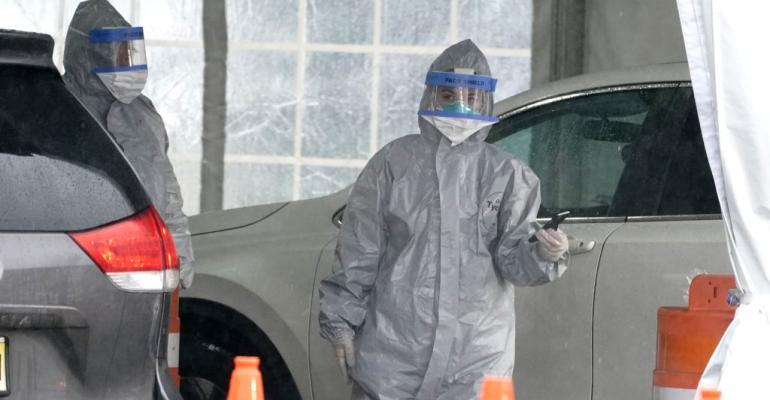A financial advisor and YouTube personality well-known in Atlanta’s Korean community was sentenced to more than three years in prison for defrauding a loan program set up to help small businesses weather the COVID-19 pandemic.
Paul Kwak, who pleaded guilty to fraud charges on June 20, was sentenced to three years and four months in prison, followed by three years of supervised release, and ordered to pay nearly $1.2 million in restitution.
“Not only did Kwak defraud the government by applying for relief funds for companies that did not exist, but he also recruited and taught others how to do the same,” Keri Farley, FBI Special Agent in Charge of the Bureau's Atlanta office, said.
The Economic Impact Disaster Loan (EIDL) Program was one of two emergency assistance programs overseen by the Small Business Association (SBA) created by the CARES Act in early 2020 (the other was the more well-known, and fraud-ridden, Paycheck Protection Program). The EIDL was created to provide emergency relief for businesses to pay debts, payroll and other expenses not covered by the PPP.
According to the Justice Department, Kwak conspired with others to submit fraudulent EIDL applications totaling millions from shell companies with no employees or business activity.
The investigation began with a South Korean national living in South Korea, who reached out to Kwak after seeing some of his YouTube videos (this individual, who later contacted federal authorities, isn’t named in the original complaint against Kwak).
In March 2020, the South Korean national sent funds to Kwak, who then established Bomnal LLC. In August, Kwak told the informant he’d apply for an EIDL program loan on behalf of Bomnal LLC, though the individual was dubious, as the company had only existed since March, according to the complaint. But the loan went through, and Kwak and the national received $150,000.
Concurrent with this transaction, Kwak released videos touting EIDL loans through his “Global Financial Academy” YouTube channel. One video in May 2020 was entitled “EIDL: Disaster Assistance You Don’t Have to Pay Back.” In it, Kwak explained in Korean that applicants could receive financial assistance without collateral or a co-signer.
“He stated that he believed many people were hesitant to apply because they are worried about getting “free money,’” the complaint read, describing a different video published in June. “Later in the video, Paul Kwak predicted that the EIDLs will be forgiven since the federal government discussed forgiving federal student loans if a second coronavirus Pandemic comes or another communal disease outbreak happens.”
The FBI began investigating Kwak that November, finding several misstatements on the Bomnal EIDL loan application, namely, falsely claiming it had more than $549,000 in revenue, seven employees and was established in 2019.
But Bomnal wasn’t Kwak's only fraudulent application, according to the DOJ; Kwak ran a “nationwide conspiracy,” with EIDL applications from residents of Washington, California and New Jersey, with Kwak’s office in Georgia listed as the business address on the loans. In the end, the DOJ found the SBA paid out more than $1 million to Kwak’s fraudulent applications.
Several other co-conspirators, including Joosoo Choi-Bang, Jon Sun Hun and Sook Hee Kim, previously pleaded guilty; Choi-Bang was sentenced to 18 months in prison, while the others will serve two years.
As part of the sentencing deal, Kwak agreed to forfeit three homes and a Mercedes GLD 580 he purchased with profits from the fraud.




